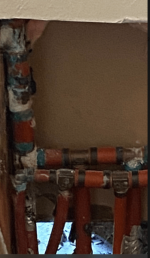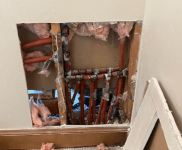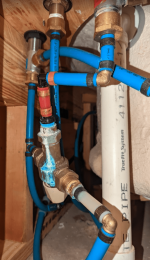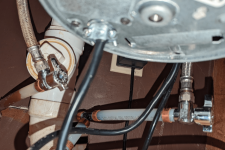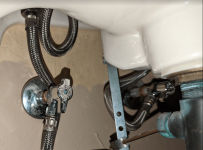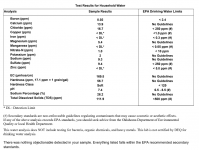- Nov 7, 2018
- 1,049
- Pool Size
- 14000
- Surface
- Plaster
- Chlorine
- Salt Water Generator
- SWG Type
- CircuPool RJ-60 Plus
I was hoping one of the guru's here could help a fella out. Long story short, we live in a house that is about 15 years old and on a well. The plumbing is mainly PEX, but fittings have been brass and/or other metal. We had a couple of them leak over the last couple of years because of corrosion (the white/green staining) and so we have had all of them replaced. Nonetheless, our neighbor has had an absolute nightmare with in-wall leaks with metal fittings that have corroded.
EDIT: The results from the university showed results that weren't CLOSE to the averages that were recorded and that I shared here initially, so I removed that information. 9/21/2022
EDIT: The results from the university showed results that weren't CLOSE to the averages that were recorded and that I shared here initially, so I removed that information. 9/21/2022
Last edited:


